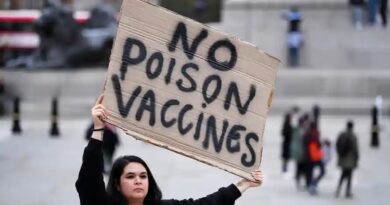Annenberg study reveals belief in conspiracy theories is setback against COVID-19 fight

New research from Penn’s Annenberg Public Policy Center reveals that belief in conspiracy theories about the coronavirus pandemic is correlated with the refusal to both accept a potential COVID-19 vaccine and engage in behaviors such as mask-wearing to mitigate spread of the virus.
The study, published Monday, found that belief in conspiracy theories about the source and seriousness of the pandemic persisted in the United States from late March to mid-July. These beliefs in March were associated with increasing reluctance to adopt preventative behaviors in July, according to the Annenberg Public Policy Center.
“Belief in pandemic conspiracy theories appears to be an obstacle to minimizing the spread of COVID-19,” co-author of the study Dan Romer said in the press release.
The Annenberg researchers found that belief in three conspiracy theories — that the Chinese government created COVID-19 as a bioweapon, the U.S. Centers for Disease Control and Prevention exaggerated the danger of the coronavirus to damage 1968 Wharton graduate Donald Trump’s presidency, and the pharmaceutical industry created the virus to increase sales of drugs and vaccines — was inversely related to the perceived threat of the pandemic.
In March, 37% of surveyed people who most strongly believed in the three conspiracy theories reported that they intended to be vaccinated, compared to 81% of people who did not believe the conspiracy theories, the study found.
By July, the vaccination intention rates dropped to 22% of those who strongly believed in the conspiracy theories, and were at 76% for people who did not believe in them.
Those who reported heavy use of conservative media or social media were more likely to believe COVID-19 conspiracy theories.
The study’s authors wrote that counteracting the effects of the conspiracy beliefs will require “continued messaging by public health authorities on mainstream media and in particular on politically conservative outlets that have supported COVID-related conspiracy theories.”
Members of marginalized racial and ethnic groups were more likely to believe in the conspiracy theories, according to the study. Older adults were proven less likely to believe the conspiracies.
Political ideology was not related to changes in vaccination intentions from March to July, but the analysis found that liberals were more likely than conservatives to adopt mask-wearing in July.
The research is based on a national probability survey of 1,050 adults in the United States conducted between March 17-27, 2020, and a follow-up with 840 of the same individuals between July 10-21, 2020. The analysis was based on the 840 individuals who took part in both waves.
More Like This
*** This article has been archived for your research. The original version from The Daily Pennsylvanian can be found here ***


